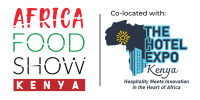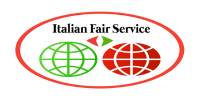
Bonjour from Dakar, Senegal! I’m writing on my way home from a country very close to my heart.
Several years ago, when I was traveling across Eastern, Central, Western, and Southern Africa, I would use Dakar as a base. It has always been a place to learn and think.
Our friends at CORAF (West and Central African Council for Agricultural Research and Development) hosted Food Tank for a week of field visits with farmers and producers, funders, donors, researchers, and scientists that are working to improve the resilience of West and Central Africa’s dryland food systems.
This regional focus is more important than ever.
The climate crisis is impacting communities right now in West and Central Africa. But there are also incredible solutions. We talked with organizations working across sectors and breaking down silos to push for real progress.
“Climate change is real, and for many communities, it’s a matter of even existing,” Sidonie Kouam of the Global Green Growth Institute tells us. GGGI is one of CORAF’s many partners working to share knowledge, disseminate research, and ensure that climate-smart technologies are accessible and adaptable to local communities throughout the region.
It’s also obvious that farmers must be included in any conversation about food systems change. Farmers know that critical changes don’t always mean re-inventing the wheel.
“Farmers are knowledge producers, not only doctors have knowledge,” says Ousmane Ndiaye of ASPRODEB, an association of farmers and fishers across West and Central Africa. “It is important to give value to farmers and what they know.”
We visited the city of Thiès, near the western coast of Senegal, and talked to so many inspiring young, women researchers. We loved hearing from Khady Nani Dramé, Research Officer at ISRA/CERAAS, about how traditional dryland crops can help build resilience to the climate crisis. Crop adaptation research at CERAAS is helping farmers become more drought-resilient—while also confronting economic, social, and environmental constraints limiting dryland food systems in the region. In their small seed bank, it was great to see their their cowpea, millet, and sorghum varieties.
We also appreciated watching folks buy baguettes made with wheat along with other traditional foods like millet, sorghum, moringa, and sweet potato. It was very cool to see how normalized these ingredients are in baguettes—and how tasty!
And we were absolutely thrilled to see our good friend, CORAF Executive Director Abdou Tenkouano, and hear his thoughts about how West and Central African agriculture is becoming more regionalized.
“You cannot work on solutions away from where the problems are,” Tenkouano tells us at a Food Tank member-exclusive conversation yesterday. “We can make things at the community level and involve the community from the start so that they can own the process.”
Too often, researchers do the science and then bring farmers in after—unsurprisingly, their efforts are rarely successful. CORAF is flipping the paradigm. They’re collaborating with research institutions, farmers, and the private sector across the region.
As an African-grown and African-led organization, CORAF is deeply connected with the realities facing those on the ground. They’re not researchers in white lab coats giving farmers seeds. They include farmers at the beginning of the research and development process—and respect their wants and needs. Farmers’ input is not only sought out but honored.
As Tenkouano tells us, “The only way to know what the needs are is to speak to those who live the reality.
Since 2008, CORAF has invested in 47 projects involving 23 countries and 178 institutions. They are actively supporting women and youth in research through their programming. Their West Africa Agricultural Productivity Program has raised the average income by 34 percent for 4.5 million producers. In the areas they worked, the average yield increased 30 percent for dry cereals and 150 percent for rice, fruit, and tubers. Caloric consumption rose and hunger periods reduced from 28 to 55 percent.

